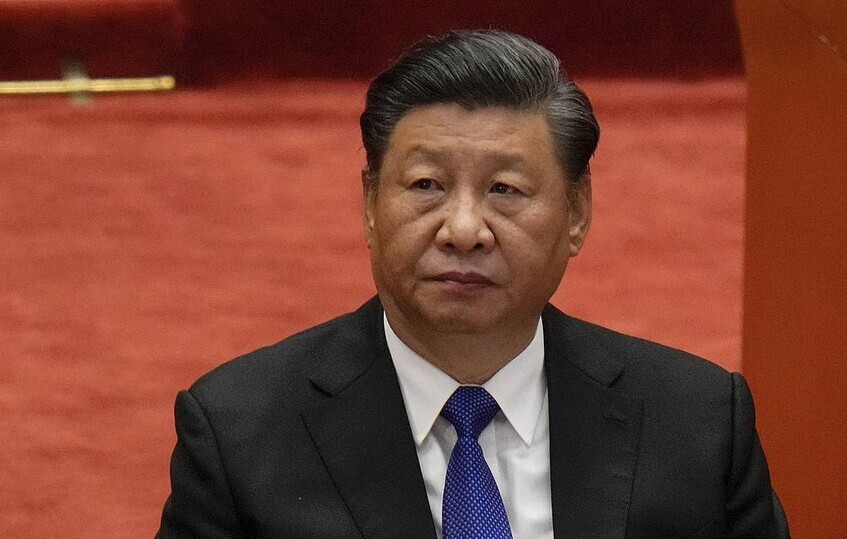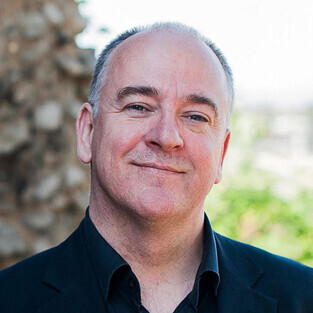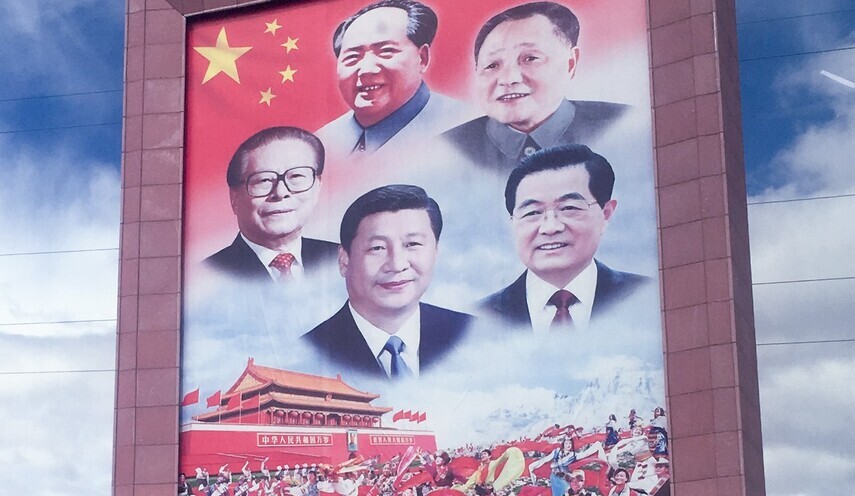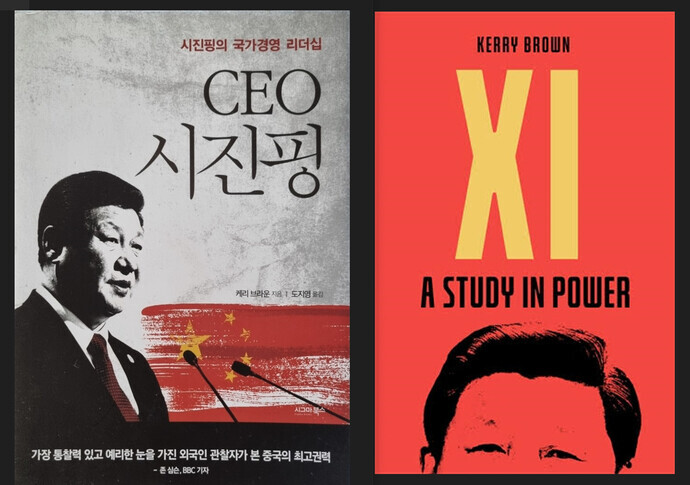hankyoreh
Links to other country sites 다른 나라 사이트 링크
[Interview] With nothing to stop him, Xi will likely seek another term this fall, expert says

Why is China clinging to its “zero-COVID” policy? Why has Alibaba founder Jack Ma pulled back from his activities? Why does China block foreign journalists from reporting in Xinjiang?
A search for answers to these and other major questions about China today inevitably leads to a single person: Xi Jinping, leader of China and its 1.4 billion people. Xi is regarded as the most powerful Chinese leader since Mao Zedong, the founder of modern China, and Deng Xiaoping, who orchestrated China’s opening.
While Xi is at the root of those challenging questions, his true motivations are exceedingly opaque. Despite being the first to appear on the front page of Chinese newspapers and the top segment of news broadcasts, his remarks are carefully curated, and never address the questions of greatest interest.
The National Congress of the Chinese Communist Party — an event held every five years — will take place in Beijing this fall, this year marking its 20th iteration. This is the event at which the party’s new leadership will be selected by more than 2,000 representatives chosen from around the country.
Xi is completing his second five-year term since becoming the party’s general secretary in 2012, so custom dictates that he step aside and make way for a new leader. But it’s generally expected that Xi will serve a third term.
Xi’s record over the past decade and his actions going forward were the subjects of an email interview with Kerry Brown, professor of Chinese studies at King’s College London and director of the Lau China Institute. Brown is regarded as a global authority on Xi.
Brown gained a wider audience, including in Korea, with the publication of his 2016 book “CEO, China: The Rise of Xi Jinping.” This past May, he delved even deeper into the subject with “Xi: A Study in Power.” This is the first interview Brown has given to the Korean media.

Brown: I tend to think of Xi as a Chinese politician who has clearly proven himself effective in the Chinese political system. That system is clearly not one that the West has much fondness for — but it is the system that China currently has and it does not look likely to change any time soon. The features of Xi’s power in this system are a high degree of centralization, but also a very complex set of structures and a vast society to rule over. That means that while we can probably say that Xi is an authoritarian leader, with a strong proclivity against instability. I think to use the term “dictator” carries too much of a value judgment. Perhaps a better way of viewing it is that the Communist Party might be able to dictate, with its power structures and culture and ethos, and Xi Jinping is the servant of that.
Hani: How would you compare Xi Jinping in 2016, when you published “CEO, China,” and Xi Jinping in 2022, when you published “Xi”?Brown: Xi may have changed in the last six years, but so too has the world. In 2016, Donald Trump had not yet become president, and COVID had not yet happened. For the UK, too, Brexit was still not on the horizon. So while I think the broad outlines of Xi’s power and his character were already pretty clear in 2016, the uncertainty and deteriorating relationship with the wider world has tended to make both Xi and the Communist Party even more defensive about Western models and ideas. Xi’s style of greater nationalistic politics and his accrual of increasing domestic powers following the 2017 congress are partly because of the situation in the wider world — meaning China now places greater emphasis on its own stability and predictability.
Hani: Xi Jinping is considered the most powerful Chinese leader since Mao and Deng. How did he come to be seen as such?Brown: For the Communist Party to continue its monopoly on power in China, it has to be in the business of politics and not be distracted by money making and business. Xi, like Mao, seems uninterested in the economy per se, but more interested in it as a political tool for the party to use and have control over. This might explain the anti-corruption struggle, where officials were reminded that they were in the business of politics, not money making, and why private companies recently have been put under so much pressure. The party is preeminent in all of Xi’s actions and behaviors. He is its faithful servant and steward. This focus means that his politics has a lot of potency — particularly at a time when China is clearly moving to yet more global predominance.
Hani: During Xi Jinping’s decade in power, China has steadily achieved economic growth and has become a great power standing against the US. On the other hand, the gap between its rich and poor has widened, and social control has deepened within its borders. In addition, China faces growing international criticism about its assault on human rights and the international order.Brown: In the last decade, Xi’s focus has been to ensure the power of the Communist Party of China is sustainable. The goal of maintaining this ongoing power is to provide a strong and wealthy country that can protect itself, ensuring that China never again suffers what Chinese leaders claim was marginalization and victimization over the last 150 years. Xi’s mission is to deliver modernity with Chinese characteristics. This appeals to a large number of Chinese, who are nationalistic and patriotic. That serves as Xi’s base.
It is true, though, that for more marginal groups, his approach has been merciless. Civil society, dissidents, and ethnic minorities accused of contesting the primacy of the party and Xi’s leadership have been attacked with a suite of technological weapons and repressive measures that have been unprecedented. The harsh truth is that for the vast majority of people in China, Xi’s nationalism, and his representing of the country as one that is more dominant and powerful than ever before, are attractive. It is likely that his “base” of support is far larger than those to whom Trump appealed in the US.

Brown: One of Xi’s most effective strategies has been to simply clarify the boundary between politics and business in China, meaning that the Communist Party is no longer regarded as financially corrupt, even if it is autocratic and overbearing. In addition, Xi has appealed to the emerging middle class with his stress on greater social equity, and has more clearly expressed Chinese narratives to the outside world. While one can argue with China’s international stories and vision for itself, one cannot, as was the case under Xi’s predecessor, say that China is silent about these now. Under Xi, it is vocal and unambiguous.
Hani: Although social control and monitoring have been ramped up to great degrees over the last 10 years, there has been no strong opposition from within China. Why is that?Brown: Xi’s great advantage in society, compared with previous leaders of China, is that he has access to digital technology and artificial intelligence that they could have only dreamed of. So this means he is a techno-autocrat. It is clearly harder for Chinese people to organize themselves in ways the party does not like, or express dissent than at any time in the previous few decades. But this should not be seen as denying that, whether the outside world likes it or not, Xi’s muscular nationalism, and more assertive posture are probably attractive to many Chinese. They support him, despite the repression, not because of it.
Hani: What has COVID-19 meant for China and Xi Jinping?Brown: COVID has deepened the division lines between China and the outside world, and made the antipathy between Europe and North America, and China, much more evident and apparent.
Hani: China’s “zero-COVID” policy continues to this day. As seen in the response to the Shanghai blockade, criticism is rising that China is exerting excessive control. There’s also the matter of it placing a high burden on the international supply chain. Why is Xi sticking to this disease control policy?Brown: At the moment, Xi sticks to this approach likely for the prosaic reason that China’s low levels of vaccinations, poor quality of vaccines, and poor quality of public health mean that were the virus to spread as it did in the US and Europe, it would carry very real mortality and social stability consequences.
Hani: Everyone talks about it like it’s a foregone conclusion, but will Xi be extending his term this fall?Brown: Power is the most addictive drug in the world. With no real impediment, it would be strange for Xi not to avail himself of a further term. There is no obvious successor of his stature at the moment, his retirement would create a great deal of uncertainty, which the Communist Party system deeply dislikes. Added to this, he clearly frames his politics in terms of leading China to be more globally dominant and influential. It is hard to see how he might withdraw from this, except on the grounds of health.
Hani: Why does Xi want to break from the “10-year rule” custom, unlike his predecessors Jiang Zemin and Hu Jintao?Brown: The “10-year rule” is a common misconception. In reality, in terms of party leadership, there has never been such a rule. The presidential role was restricted to two terms, until Xi lifted these, so that has changed. But in many ways, there are no hard and fast rules for leadership terms in China. Political leaders frequently change rules and laws. People should not be surprised that Xi Jinping, who operates in a far less law-led and rigid system than in places like the UK or the US, would rewrite the rules, especially as the rules were never there in the first place.

Brown: Xi seeks the satisfaction of being the leader who, following on from the tradition of Mao, Deng, Jiang and Hu, fulfills the same goal they all strove for and contributed to — China successfully becoming a great, rich, powerful country that has achieved modernity on its own standards. The key difference being that Xi is able to see the fruition of this. No wealth in the world could possibly compete with the satisfaction of achieving this goal, and the status that history books in China will accord Xi if he can achieve this.
Hani: If China’s economic level rises further than now, will the Chinese people continue to tolerate the Communist Party’s strong social control?
Brown: Political reform in China might become more pressing. But even if it wore the label of democracy, there is a strong likelihood that it would be very specific to China. If China was able to redesign and redraw Marxism to a very specific model, then it is likely it can do the same for democracy. China today, as never before, is not attracted by the political systems of the US and Europe which can see divisive politicians like Trump and Johnson emerge. In Chinese politics, stability is paramount.
Hani: Koreans harbor intensely negative feelings toward China. How should Korea forge ties with Xi’s China?
Brown: Korea is a neighbor of China; it is right to be both skeptical of China’s attitude and wary of China’s role in the region. But Koreans also need to acknowledge that while China might want status, it does not want responsibility, and Korea has a long history of being able to manage this balance, according its huge neighbor “face” while getting on with its own business.
Hani: China and the US are at odds over Taiwan. Some even say that China will invade Taiwan within a few years. What are your thoughts on this?
Brown: Conflict with Taiwan is possible, but were China to do this, it would have a catastrophic impact both economically on the region and on China’s role in the world. It is likely therefore that while China’s rhetoric on Taiwan will be fierce, and it will continue to try to isolate and pressurize the island, it will not do as Russia has done with Ukraine, and invade. An amphibious landing, in any case, is a much harder measure than a land war. The only prompt for China to act rashly would be unilateral declarations of independence by Taiwan — something so far the island’s leaders have avoided. This issue is one that needs to be managed constantly as one for maintaining the status quo. One day a solution might appear. But we are decades from that at present.
By Choi Hyun-june, Beijing correspondent
Please direct questions or comments to [english@hani.co.kr]
Editorial・opinion
![[Column] Has Korea, too, crossed the Rubicon on China? [Column] Has Korea, too, crossed the Rubicon on China?](https://flexible.img.hani.co.kr/flexible/normal/500/300/imgdb/original/2024/0419/9317135153409185.jpg) [Column] Has Korea, too, crossed the Rubicon on China?
[Column] Has Korea, too, crossed the Rubicon on China?![[Correspondent’s column] In Japan’s alliance with US, echoes of its past alliances with UK [Correspondent’s column] In Japan’s alliance with US, echoes of its past alliances with UK](https://flexible.img.hani.co.kr/flexible/normal/500/300/imgdb/original/2024/0419/2317135166563519.jpg) [Correspondent’s column] In Japan’s alliance with US, echoes of its past alliances with UK
[Correspondent’s column] In Japan’s alliance with US, echoes of its past alliances with UK- [Editorial] Does Yoon think the Korean public is wrong?
- [Editorial] As it bolsters its alliance with US, Japan must be accountable for past
- [Guest essay] Amending the Constitution is Yoon’s key to leaving office in public’s good graces
- [Editorial] 10 years on, lessons of Sewol tragedy must never be forgotten
- [Column] A death blow to Korea’s prosecutor politics
- [Correspondent’s column] The US and the end of Japanese pacifism
- [Guest essay] How Korea turned its trainee doctors into monsters
- [Guest essay] As someone who helped forge Seoul-Moscow ties, their status today troubles me
Most viewed articles
- 1[Column] The clock is ticking for Korea’s first lady
- 2Samsung barricades office as unionized workers strike for better conditions
- 3After 2 months of delayed, denied medical care, Koreans worry worst may be yet to come
- 4[Correspondent’s column] In Japan’s alliance with US, echoes of its past alliances with UK
- 5[Column] Has Korea, too, crossed the Rubicon on China?
- 6Hong Se-hwa, voice for tolerance whose memoir of exile touched a chord, dies at 76
- 7[Photo] Smile ambassador, you’re on camera
- 8All eyes on Xiaomi after it pulls off EV that Apple couldn’t
- 9[Guest essay] How Korea turned its trainee doctors into monsters
- 10US overtakes China as Korea’s top export market, prompting trade sanction jitters